We all want our cat to live their best–and healthiest–life possible. That goes without saying. However, there are common ailments and emergencies that will send us cat in tow to the veterinarian’s office for immediate medical assistance. Cats are resilient beings that are the masters of hiding their pain. So sometimes they rely on us, their masters, to watch carefully and observe any changes to their health. Thankfully for us, the common reasons adult cats are rushed to the vet you will find on this list, will trigger your red flag senses as they are easy to identify more times than not.
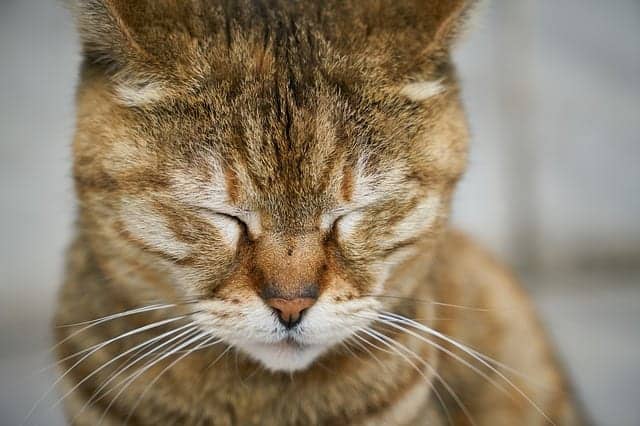
Here is our list of 9 common reasons why adult cats are rushed to the vet…
Vomiting And/Or Diarrhea
As you know, changes to your cat’s diet can upset their sensitive tummies. But what if your cat accidentally eats something that they’ve shouldn’t? This can make for a mess, as well as a kitty with digestive and intestinal issues.
There are also several other reasons that can cause your cat to suddenly experience vomiting or diarrhea. Some of which have the possibility of worsening in the matter of only a few hours! Toxins and parasites have the ability to cause your cat to become very ill, and fast. If your cat is experiencing a sudden onset of vomiting or diarrhea, they are at risk of becoming dehydrated due to the lack of necessary fluids in their body. It’s best to take your cat to the vet immediately should you notice that this persists for more than a few hours.
Choking/Coughing
Now, we aren’t talking about hairballs here which are relatively common in cats. If you notice that your cat is suddenly coughing and/or choking, this is a major cause for concern and medical intervention should take place.
Choking in cats is a serious matter, even if the symptoms resolve within seconds. Lack of proper oxygenation or the build-up of fluid within the lungs can be a dangerous consequence of choking.
In terms of coughing, this should also be taken very seriously. Its underlying cause could be something much more serious. It could be a virus, bacteria, fungal pneumonia, allergic bronchitis, or even congenital heart disease.
Traumatic Injury
We don’t need to elaborate in much detail on this one. If your cat has experienced any sort of trauma, i.e. getting struck by a moving vehicle, being attacked by another animal, or falling from an unsafe distance, this calls for an immediate vet visit. Even if your cat seems like they are fine, it is better to be safe than sorry when it comes to our feline friends.

Foreign Body Ingestion
Cats can sometimes get ahold of things that might seem like fun. But many of these are actually quite dangerous should they ingest them. Some of these include, hair ties, tinsel, string, rope or ribbons. Because of this reason, it’s best to keep items such as these far out of your cat’s reach. But should you happen to see them ingest it, take them to the vet ASAP.
Regardless of what the foreign body is, it can quickly become problematic for your cat as it will cause gastrointestinal problems, such as intestinal obstructions or perforations. There is also the possibility that these objects can become stuck in your cat’s throat or trachea. They then have the potential to lead to choking or suffocation.
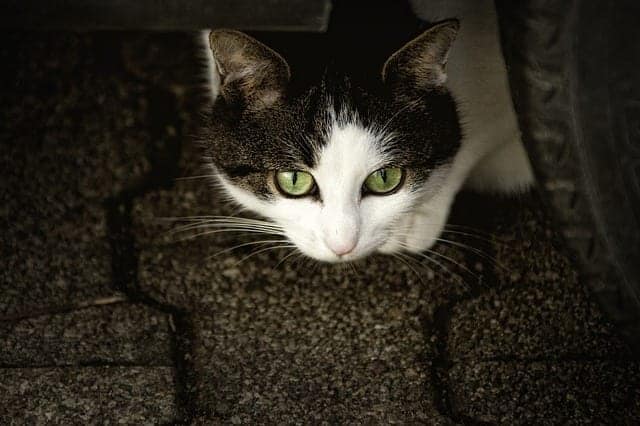
Didn’t catch your adult cat in the act but suspect that this could be the issue? Here are the clinical signs of a foreign body obstruction:
- Vomiting
- Diarrhea
- Abdominal tenderness or pain
- Decreased appetite or anorexia
- Straining to defecate or producing small amounts of feces
- Lethargy
- Changes in behavior such as biting or growling when picked up or handled around the abdomen
- Pawing at the face or mouth if there is string or thread that has become wrapped around the base of the tongue
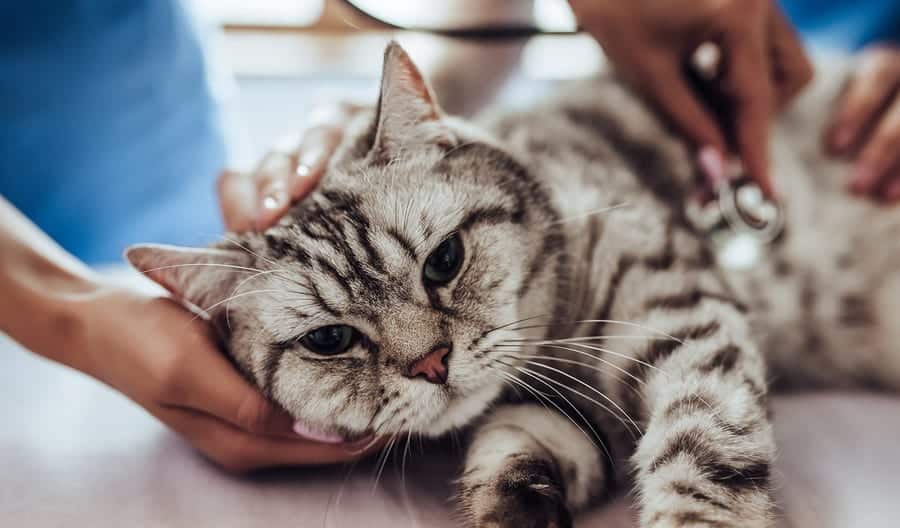
Toxic Ingestion
Our cats are highly intelligent creatures. Sadly, that does not mean that they don’t put themselves at risk of coming in contact with toxic chemicals, substances, or foods. Toxic plants are also a huge risk to cats. It often seems they are drawn to these pretty plants and their hidden dangers, (lilies of any form, especially).
A list of commonly found toxins lying around your home are as follows:
Cleaning chemicals, medications (both prescription and over-the-counter) and chocolate. Outside toxins are garden products (fertilizers, plants, bulbs), rodenticides, and insecticides.
Wounds That Won’t Heal
Tiny cuts and scrapes are usually something that will heal on their own. But if your cat has experienced a major scrape, burn, laceration or puncture wound, it is imperative that you seek veterinary assessment and treatment.
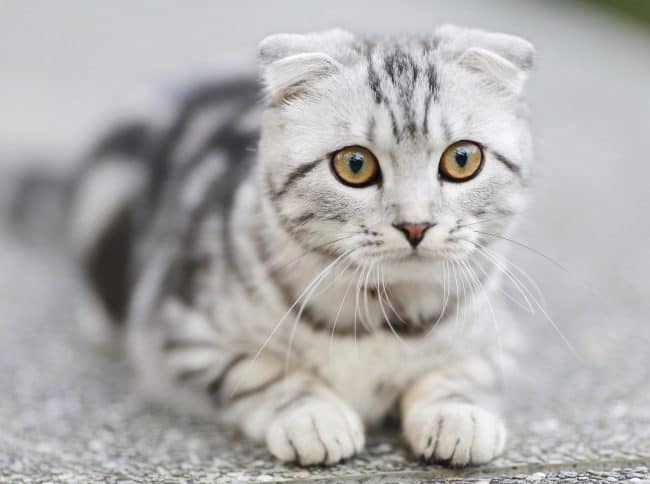
Difficulty Urinating/Constipation/Sudden Lack of Urination in Adult Cats
Changes in your adult cats usual urinary behavior might be easy to notice. Usually that’s if you are the one responsible for keeping their litter box “spic and span” clean. If your cat is avoiding the litter box, it could be due to a urinary tract infection, kidney issue, or something else which is causing them pain–which is why they are avoiding it.
Is your cat suddenly unable to hold their urine? Even humans who are experiencing UTIs have the sudden urge to urinate, so the same can be said for your cat. But the increase of urination (usually accompanied with excessive thirst), could be something much more serious and needs to be made certain by a trusted veterinary professional.
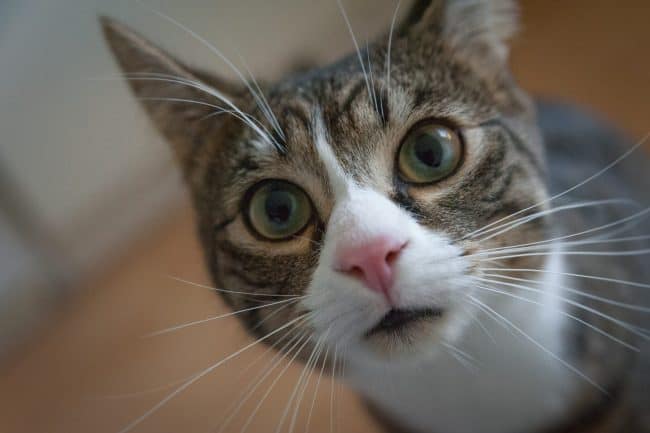
Seizures
This is another common reason that adult cats see the vet that is easy to spot. Seizures are episodes of abnormal electrical activity within the brain. This can be as a result of a life-threatening condition and medical treatment needs to take place at the first sign of seizure. Some possibilities for your cat’s sudden seizure(s) include:
Intra-cranial problems (such as epilepsy, brain tumors, or brain swelling)
Extra-cranial problems (such as low blood sugar, electrolyte disturbances)
Your cat’s seizures might come in clusters, or sporadically with no clear pattern. Either way, it’s vital that you seek veterinary care immediately to determine the root of the cause.
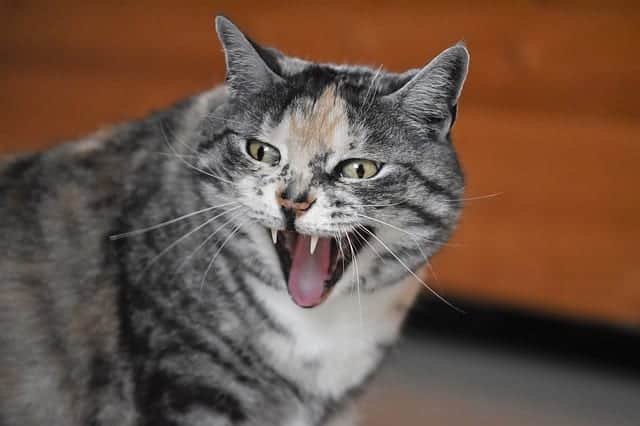
Pain
A sudden and unexplained change in behavior in adult cats, as well as limited movement/mobility, are clear indications that your cat is experiencing pain. A clear indicator is when your usually sweet cat, hisses or moans should you try to pick them up. It’s important that you take them in for a physical examination to get to the root of their issue. This change in temperament is likely pain related.
REMEMBER: ADOPT, DON’T SHOP; FOSTERING SAVES LIVES & SPAY AND NEUTER!
Related Story: How Often Should You Take Your Cat to the Vet?
Related Video: Cole’s Emergency Vet Visit


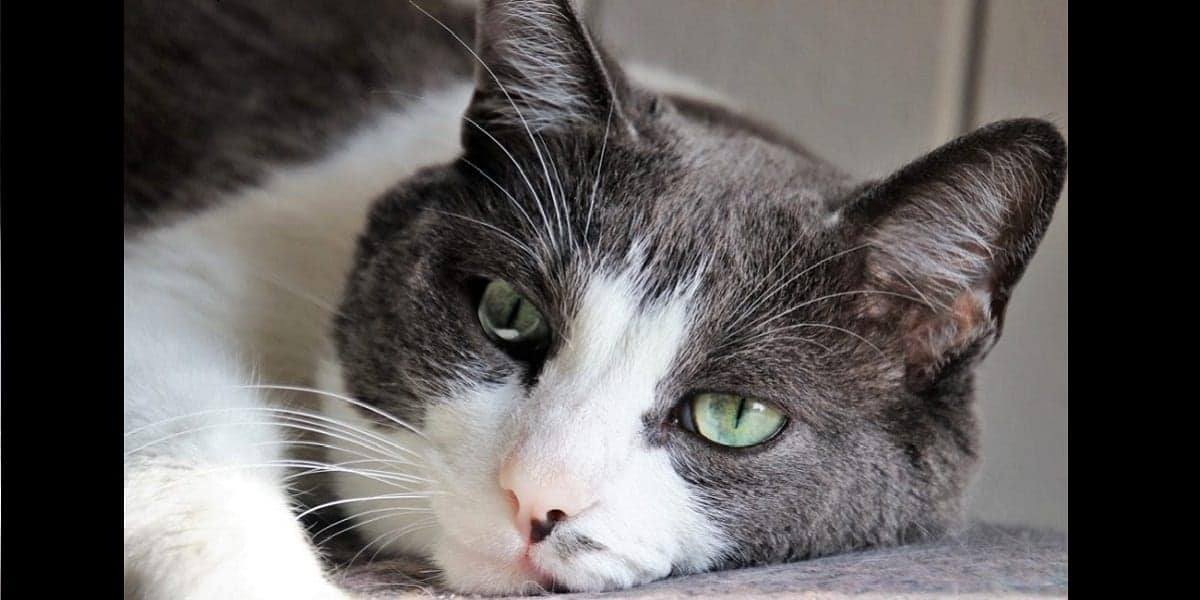



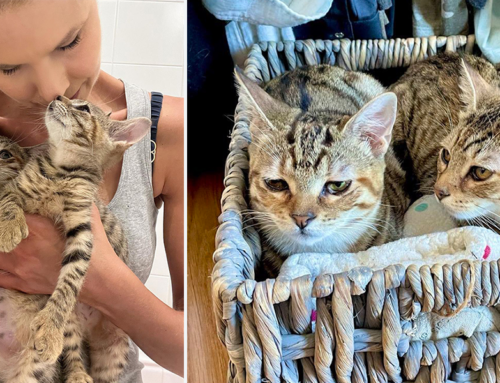
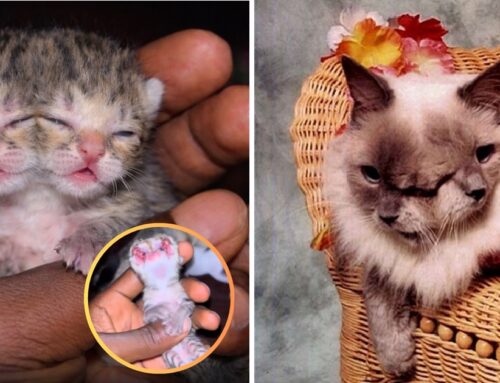
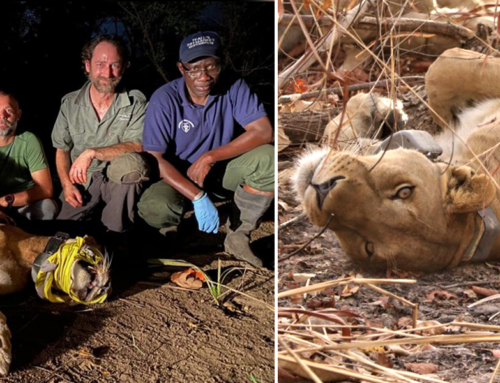
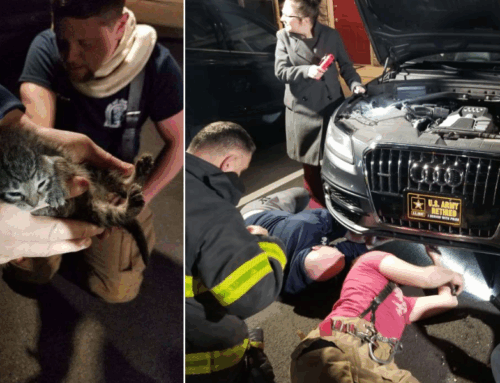
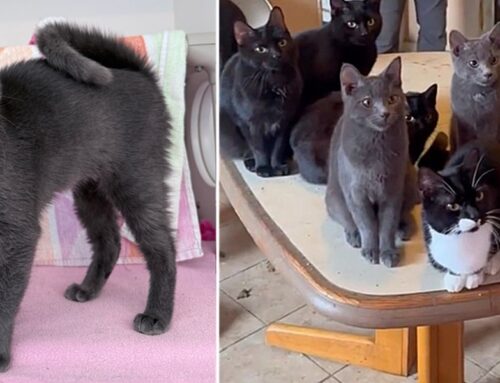
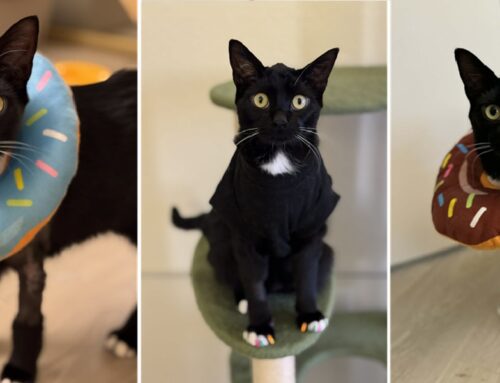
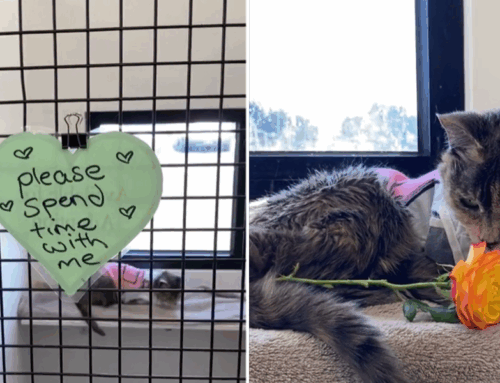
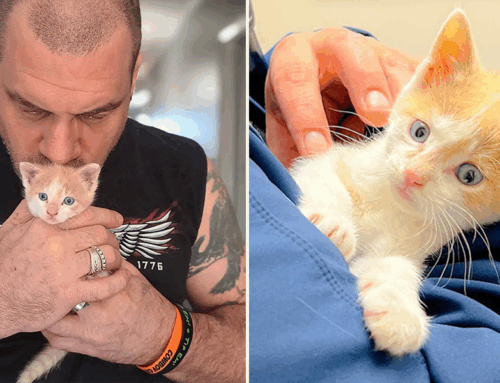
One thing not covered. If your normally social cat suddenly starts hiding and not eating. In the case of my poor little Bandit, it meant she had either five or fly. The doctor wasn’t sure which and even though she had had all her dots, the vet said she could have gotten either from her mother. When I took her to the vet, he said there was no treatment for her condition and I had to let her go 3 days after Christmas. I am still sick about it as I had adopted her from a vet and assumed she had been already tested.
Thanks for mentioning how changes in the diet of a cat can upset their bellies. It is important to understand that doing some research can help you find the best way to care for your animals. I can see how anyone looking into this would want to compare several vets before choosing one.
I wanted to thank you for explaining why cats could be rushed to the vet. It’s good to know that you should go the vet quickly if you see a cat ingest something that could be dangerous. This sounds important to do if you have any doubts or questions about what your cat has eaten.
Thank you for this very informative article! I’d love to see someone examine something I read recently – that cats see vets due to “stress” something like 30-40% of visits are for stress? Recently one of my cats began overgrooming certain spots on her body, I believe because I had foster kittens briefly and they invaded “her” space… I had had foster kittens before and there were no problems. But stress in cats can cause serious psychological and physical problems… pica, for instance. Cats may start chewing plastic bags (‘pika’) because of stress… anyhow I’d love to see someone address this. Thanks so much!